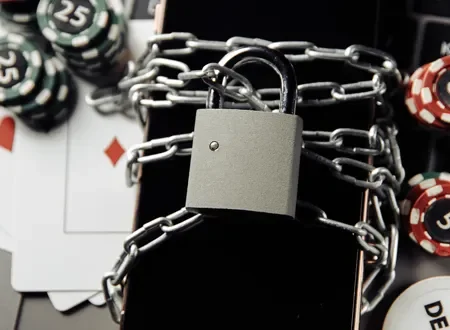
Operating a casino without a license is a serious violation that carries significant consequences for both operators and their owners. A license is not merely a formality but a mandatory requirement to ensure player safety, transparency, and fairness in gaming. The absence of a license exposes a casino to hefty fines, legal troubles, and reputational damage. In this article, I, as an expert in the online gambling industry, will outline the penalties and repercussions casinos may face for unlicensed operations and explain why licensing is crucial for both operators and players.
Why Do Casinos Need a License?
A casino license is an official authorization from a regulatory body, permitting the operator to legally offer its services to players. It guarantees that the casino adheres to established laws and standards, ensuring security and fair play.
Key Functions of a License:
- Player Protection: A license ensures the operator meets safety and fairness standards, safeguarding players’ interests.
- Oversight and Regulation: Licensed casinos undergo regular audits, reducing the risk of fraud and manipulation.
- Legality and Transparency: A license allows operators to function legally and offer services within the bounds of the law.
What Penalties Do Casinos Face for Operating Without a License?
Unlicensed operations carry severe consequences for casino operators, including substantial fines, revenue confiscation, criminal liability, and reputational damage. Below are the primary penalties unlicensed operators may face.
1. Heavy Fines and Financial Penalties
One of the primary punishments for operating without a license is the imposition of substantial fines. The amount varies depending on the jurisdiction and severity of the violation.
Examples of Fines:
Malta (Malta Gaming Authority – MGA): Fines for unlicensed operations in Malta can reach hundreds of thousands of euros. The MGA actively combats illegal operators, imposing hefty fines and demanding full tax compliance.
United Kingdom (UK Gambling Commission – UKGC): In the UK, fines for unlicensed activity can also amount to hundreds of thousands—or even millions—of pounds in cases of serious violations.
2. Revenue and Asset Confiscation
Unlicensed operators may face the seizure of income and assets obtained through illegal activities. This measure aims to strip operators of profits gained from unlawful operations.
Revenue Seizure: Regulatory authorities may demand the operator forfeit all earnings from unlicensed activities.
Asset Freezing: An operator’s assets may be frozen during investigations, preventing further business operations.
3. Criminal Liability and Prison Sentences
In some jurisdictions, operating a casino without a license can lead to criminal charges and even prison time for owners and managers.
Criminal Charges: In certain countries, unlicensed operations are treated as serious offenses, potentially resulting in fraud or illegal business charges.
Jail Time: Depending on the jurisdiction, owners of unlicensed casinos may face prison sentences ranging from months to years.
4. Website and Access Blocking
Unlicensed online casinos may also encounter website blocks and restricted player access. Regulatory bodies collaborate with internet service providers to shut down illegal platforms.
Domain Blocking: Authorities like Russia’s Roskomnadzor or the UK Gambling Commission can initiate domain blocks against unlicensed operators.
Access Restrictions: Internet providers are required to block user access to unlicensed gambling sites.
Consequences of Unlicensed Operations for Casino Operators
Operating without a license not only carries financial and legal repercussions but also severe reputational risks. Below are the key consequences of unlicensed activity.
1. Loss of Player Trust
The absence of a license significantly erodes player trust. Players recognize the risks of engaging with unlicensed casinos, such as the inability to recover funds or unfair treatment by the operator.
- Lack of Protection: Players cannot appeal to regulators for dispute resolution.
- Payout Issues: Delays or denials in withdrawals further diminish trust in the operator.
2. Inability to Operate Legally in International Markets
Without a license, casinos cannot legally function in international markets. Licensed casinos, however, can serve players globally, expanding their audience and revenue.
- Geographic Restrictions: Unlicensed casinos cannot operate in strictly regulated markets like the UK or Germany.
- Advertising Bans: Platforms like Google and Facebook prohibit ads for unlicensed casinos, limiting promotional opportunities.
3. Risks of Fraud and Manipulation
Unlicensed casinos are not bound by fairness or data protection standards, increasing the risk of fraud, game manipulation, and data breaches.
- No RNG Audits: Unlicensed casinos lack mandatory checks on Random Number Generators (RNGs), enabling unfair gameplay.
- Data Leak Risks: Without modern security measures, players’ personal and financial data may be compromised.
Why Should Players Choose Licensed Casinos?
Players should always opt for licensed casinos to protect their funds, personal data, and ensure fair play and timely payouts. Below are the key reasons licensing matters to players.
1. Player Rights Protection
Licensed casinos must comply with regulations safeguarding player rights. This means players can escalate disputes to regulators for impartial resolution.
Complaint Mechanisms: Regulatory bodies provide channels for players to file grievances.
Operator Accountability: Licensed casinos must honor bonus terms, ensure fair payouts, and maintain transparent rules.
2. Fair Gaming and RNG Certification
Licensed casinos use certified RNGs, guaranteeing unbiased and random game outcomes—critical for fair play and equal winning chances.
RNG Audits: Independent labs like eCOGRA or GLI verify RNGs to ensure fairness.
Anti-Manipulation Measures: Certified RNGs eliminate tampering, ensuring honest gameplay.
3. Data Security and Transaction Protection
Licensed casinos must adhere to security standards, including advanced encryption to safeguard player data and transactions.
SSL Encryption: Licensed casinos employ SSL encryption to prevent data breaches.
Compliance with Standards: They follow international security protocols like PCI DSS for payment processing.
Conclusion
Operating a casino without a license is a serious offense, punishable by heavy fines, asset seizures, criminal charges, and website blocks. A license is a vital safeguard, ensuring player security, fairness, and rights protection. Licensed casinos must meet stringent standards, making them more reliable and safer for players. When choosing a casino, always verify its licensing to secure your funds and enjoy fair gaming without risks.












